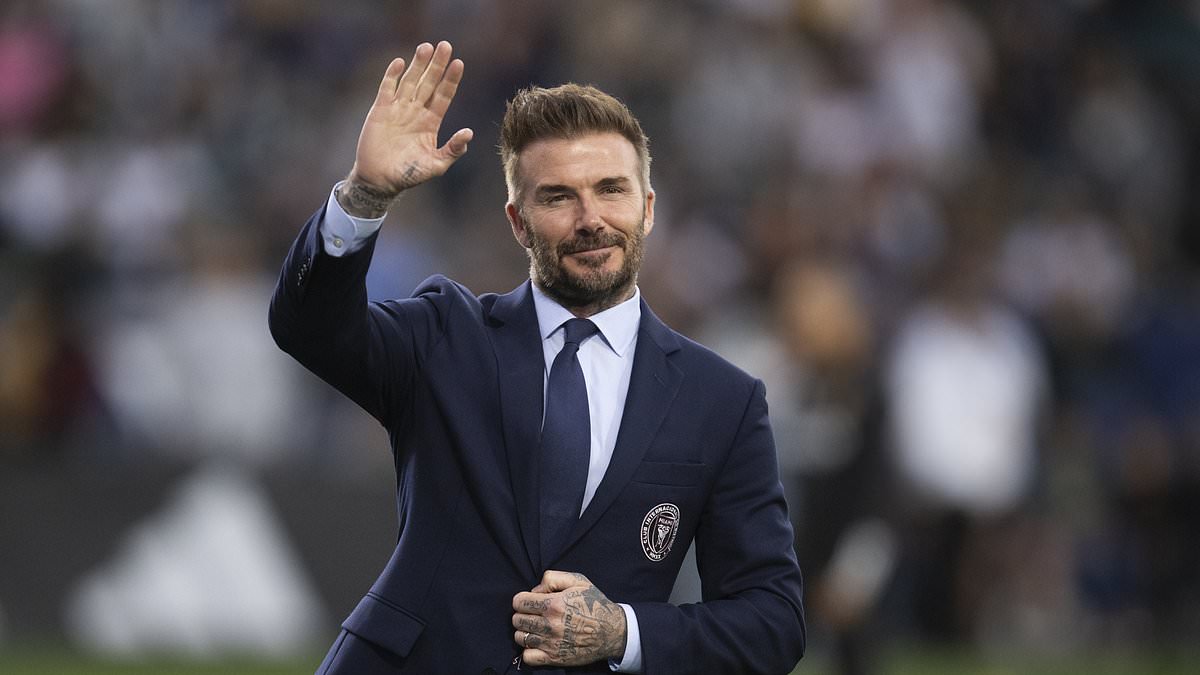IS DAVID BECKHAM THE SAVIOUR OF MLS
In the annals of Major League Soccer (MLS), few names resonate as profoundly as David Beckham's. Since his landmark move to LA Galaxy in 2007, Beckham has played a pivotal role in transforming the league's global perception, its appeal to international players, and its overall growth.

While the term "saviour" might seem hyperbolic, examining Beckham's influence on MLS reveals the extent of his impact and the foundations he laid for the league's resurgence and future prospects.
Beckham's arrival at LA Galaxy wasn't merely a transfer; it was a statement of intent from MLS to elevate the league to new heights. The English superstar brought with him a global following, unparalleled media attention, and a significant uptick in the league's commercial revenues. His presence in the league attracted new fans, not just in the United States but around the world, making MLS matches a globally watched spectacle.
One of Beckham's most significant legacies is the Designated Player Rule, often dubbed the "Beckham Rule." This regulation allowed teams to sign up to three players that would be considered outside the team's salary cap, enabling the acquisition of international stars. Beckham's signing was the catalyst for this change, which has since enabled MLS clubs to attract global talents like Thierry Henry, Robbie Keane, and Zlatan Ibrahimović, enhancing the league's competitive edge and marketability.
Beyond attracting star power, Beckham's tenure in MLS served as an endorsement of the league's quality and potential. Skeptics doubted the league's ability to nurture and retain talents that could compete on the world stage. Beckham's successful stint, culminating in two MLS Cup victories in 2011 and 2012, helped dispel such doubts, showcasing MLS as a league capable of both developing homegrown talents and integrating international stars.
Off the pitch, Beckham's influence extended into the boardrooms and business dealings of the league. His global brand and savvy business acumen attracted new sponsors, investors, and media partners to MLS, contributing to the league's financial stability and growth. The increased revenue streams have since allowed clubs to invest in youth academies, state-of-the-art stadiums, and training facilities, laying the groundwork for the future of American soccer.
Perhaps the most enduring part of Beckham's legacy is his role in co-owning Inter Miami CF, marking a transition from star player to club owner. This move underscores his ongoing commitment to the league and its expansion. Through Inter Miami, Beckham has continued to champion the growth of soccer in the U.S., leveraging his influence and network to bring in high-profile players and staff, further raising the league's profile.
However, labeling Beckham as the "saviour" of MLS may oversimplify the narrative and overlook the contributions of many others who have played significant roles in the league's development. MLS's growth is the result of concerted efforts by countless individuals, including players, coaches, administrators, and fans. Beckham, though a transformative figure, is part of this broader ensemble driving the league forward.
In evaluating Beckham's impact on MLS, it's evident that his arrival marked a turning point in the league's history. He helped shift perceptions, elevate standards, and lay down a marker for what the league could become. While the journey of MLS's growth is far from complete, Beckham's influence has undoubtedly accelerated its progress, making him one of the most influential figures in the league's history.
In conclusion, while the debate on whether David Beckham is the "saviour" of MLS will continue, his profound impact on the league is undeniable. Through his play, his brand, and now his ownership, Beckham has helped guide MLS through a period of significant transformation, securing his legacy not just as a player, but as a foundational pillar in the league's ongoing journey towards becoming a dominant force in the global soccer landscape.